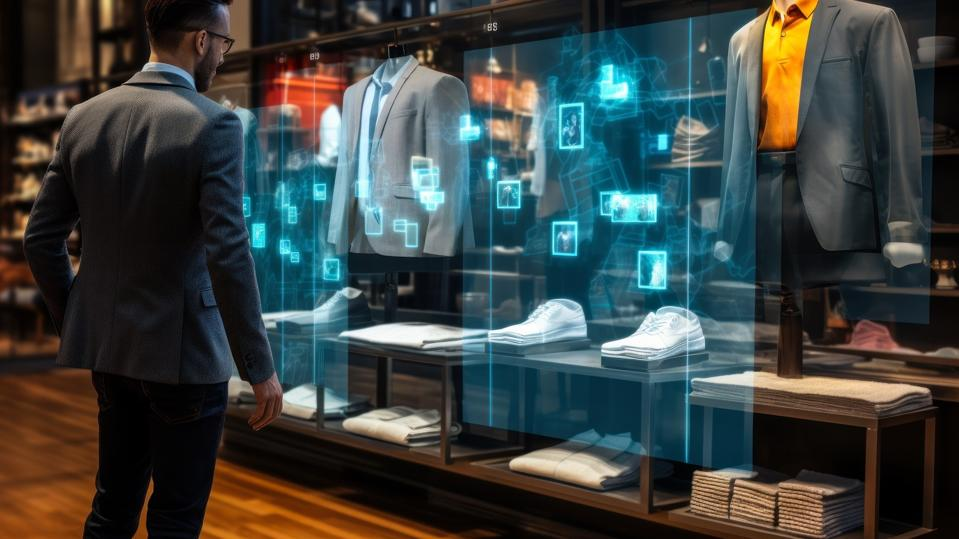Now Reading: Retail Innovation Unlocks Smarter, Faster, and Sustainable Shopping Worldwide 2025
-
01
Retail Innovation Unlocks Smarter, Faster, and Sustainable Shopping Worldwide 2025
Retail Innovation Unlocks Smarter, Faster, and Sustainable Shopping Worldwide 2025

Table of Contents
The retail industry is changing faster than ever before. From small neighborhood stores to global chains, businesses are adopting new technologies and strategies to meet customer needs. This transformation is called retail innovation. It includes everything from smart checkout systems and artificial intelligence (AI) to personalized shopping and sustainable practices. Retail innovation is not just a trend; it is a way to survive and grow in a competitive world.
In this article, we explore how innovation is reshaping retail, the key technologies driving this change, and what it means for both businesses and customers.
Why Retail Innovation Matters Today

Retail innovation ensures that businesses remain relevant in a rapidly evolving market. With e-commerce giants, new digital platforms, and shifting consumer expectations, traditional methods of selling are no longer enough. Today’s shoppers want:
- Convenience: Quick, smooth shopping experiences both online and offline.
- Personalization: Products and offers that match their preferences.
- Sustainability: Eco-friendly practices and transparent supply chains.
- Omnichannel access: A seamless link between physical stores, apps, and websites.
Retailers that fail to innovate risk losing customers to competitors who provide faster, smarter, and more engaging experiences.
Key Drivers of Retail Innovation
1. Artificial Intelligence and Machine Learning

AI is now at the core of retail transformation. From predicting what a customer will buy next to offering personalized recommendations, AI helps businesses understand shoppers better. Many online platforms use machine learning to analyze browsing and purchase history, ensuring every shopper sees products that match their interests.
For example, virtual shopping assistants powered by AI are making customer support more efficient, providing instant answers, and helping buyers make decisions quickly.
2. Smart Checkout and Cashless Payments
Long queues at checkout counters are becoming a thing of the past. Self-checkout kiosks, scan-and-go apps, and even cashier-less stores are growing. In some places, customers can simply pick up items and leave the store, with payment completed automatically through digital wallets.
This innovation not only saves time but also reduces costs for retailers and enhances customer satisfaction.
3. Augmented Reality (AR) and Virtual Reality (VR)
Trying before buying has taken a digital twist. Augmented reality allows customers to visualize products in their homes, such as seeing how a sofa fits in a living room or how a pair of glasses looks on their face. Virtual reality, on the other hand, offers immersive shopping experiences, allowing customers to walk through a digital store without leaving their home.
These tools reduce product returns and improve customer confidence in their purchases.
4. Data Analytics and Customer Insights
Retailers now collect huge amounts of data about customer behavior, preferences, and feedback. Advanced analytics help them spot trends, adjust inventory, and plan marketing campaigns more effectively. This results in fewer wasted resources and higher customer satisfaction.
5. Sustainable and Ethical Retail Practices
Today’s shoppers, especially younger generations, value sustainability. Innovative retailers are adopting eco-friendly packaging, circular economy models, and ethical sourcing. Some stores even allow customers to return old products for recycling or resale. This not only benefits the planet but also builds customer trust and loyalty.
Retail Innovation in Physical Stores
While e-commerce is booming, physical stores are not disappearing. Instead, they are evolving. Many brands are turning their stores into experience centers rather than just sales outlets.
Examples include:
- Smart mirrors in fashion stores that suggest outfit combinations.
- Interactive product displays that give detailed information through QR codes.
- Mobile checkout options that let customers pay without standing in line.
By blending technology with human interaction, physical stores are staying relevant in the digital era.
The Rise of Omnichannel Retailing

One of the biggest retail innovations is omnichannel retailing. This strategy connects online and offline shopping, giving customers a smooth experience across multiple platforms.
For example:
- Customers may browse products online, try them in-store, and purchase via mobile app.
- Loyalty points and discounts are valid across all channels.
- Customer service is unified, whether through chatbots, phone calls, or in-person help.
Omnichannel retailing builds stronger relationships with customers, as it gives them freedom and flexibility.
Challenges in Adopting Retail Innovation
While innovation offers many benefits, it also brings challenges for retailers:
- High costs: Implementing new technologies can be expensive for small businesses.
- Cybersecurity risks: Digital platforms need strong protection to keep customer data safe.
- Employee training: Staff must learn how to use new systems effectively.
- Customer adaptation: Some shoppers may be slow to accept new technologies.
Despite these challenges, most retailers recognize that the long-term benefits outweigh the risks.
Future of Retail Innovation
The future of retail will likely combine AI-driven personalization, AR/VR shopping, and sustainability at scale. Smart stores, drone deliveries, and even blockchain-based supply chains are already being tested. Retailers that continue to invest in innovation will be able to create stronger customer loyalty and stand out in the global market.
Conclusion
Retail innovation is not only about technology it’s about creating value for customers. By focusing on convenience, personalization, sustainability, and seamless shopping, retailers can transform the way people buy and interact with brands. As the digital age continues to evolve, innovation will remain the key driver of growth in the retail industry.
READ MORE:- Deyaar’s Latest Announcement Shakes Up the UAE Property Market






















